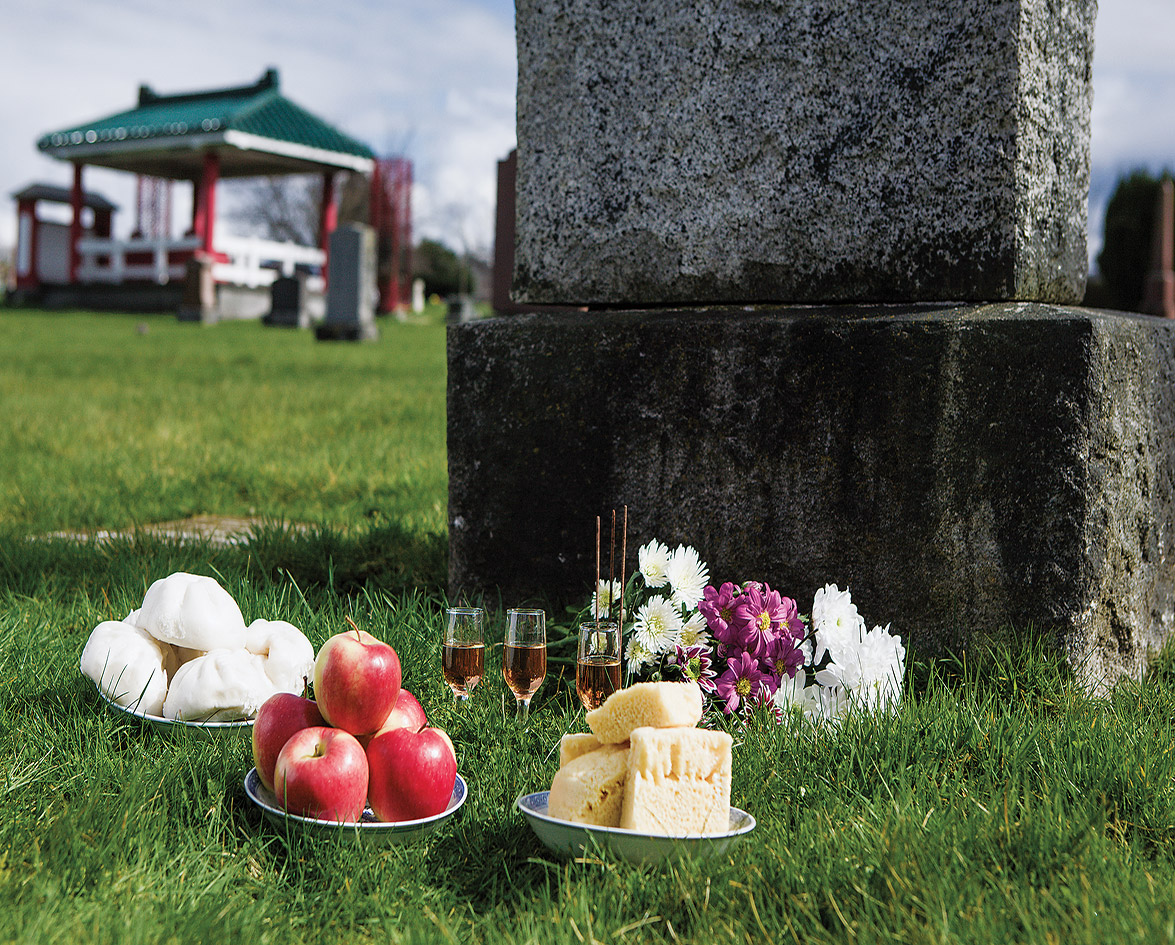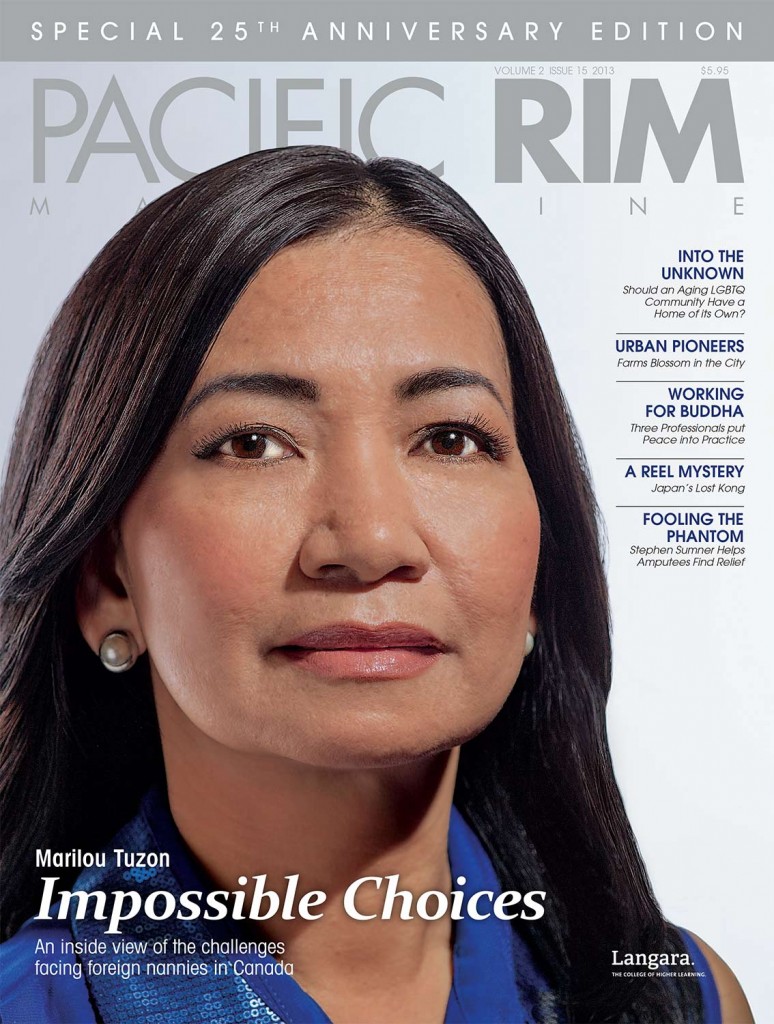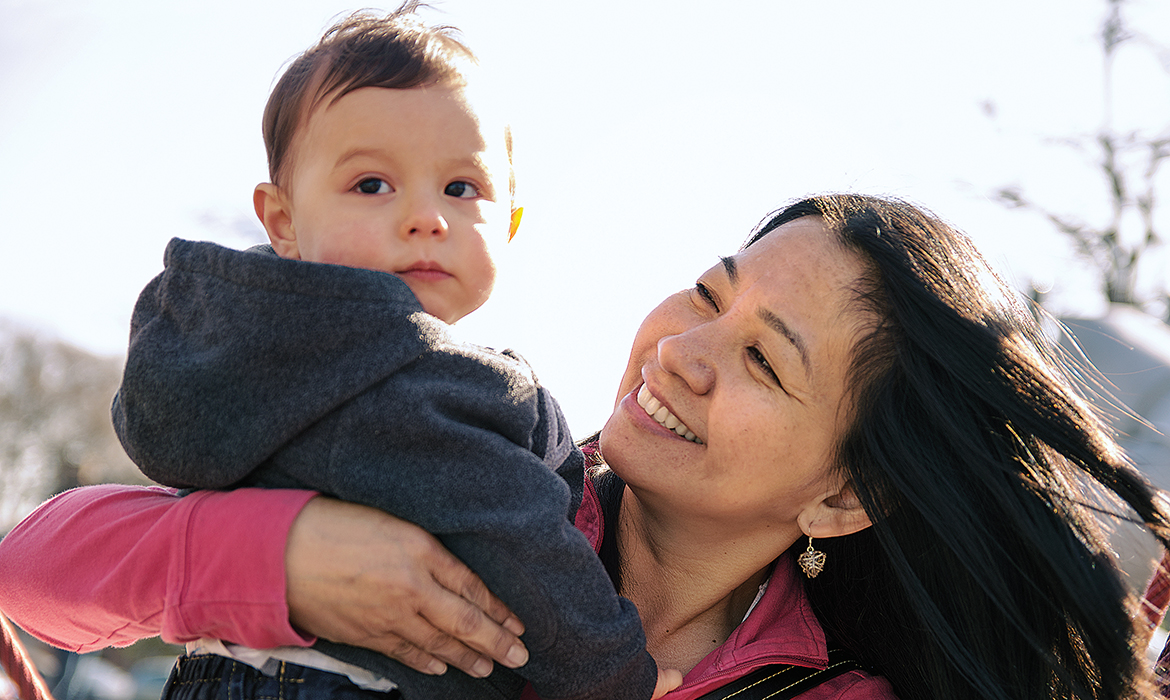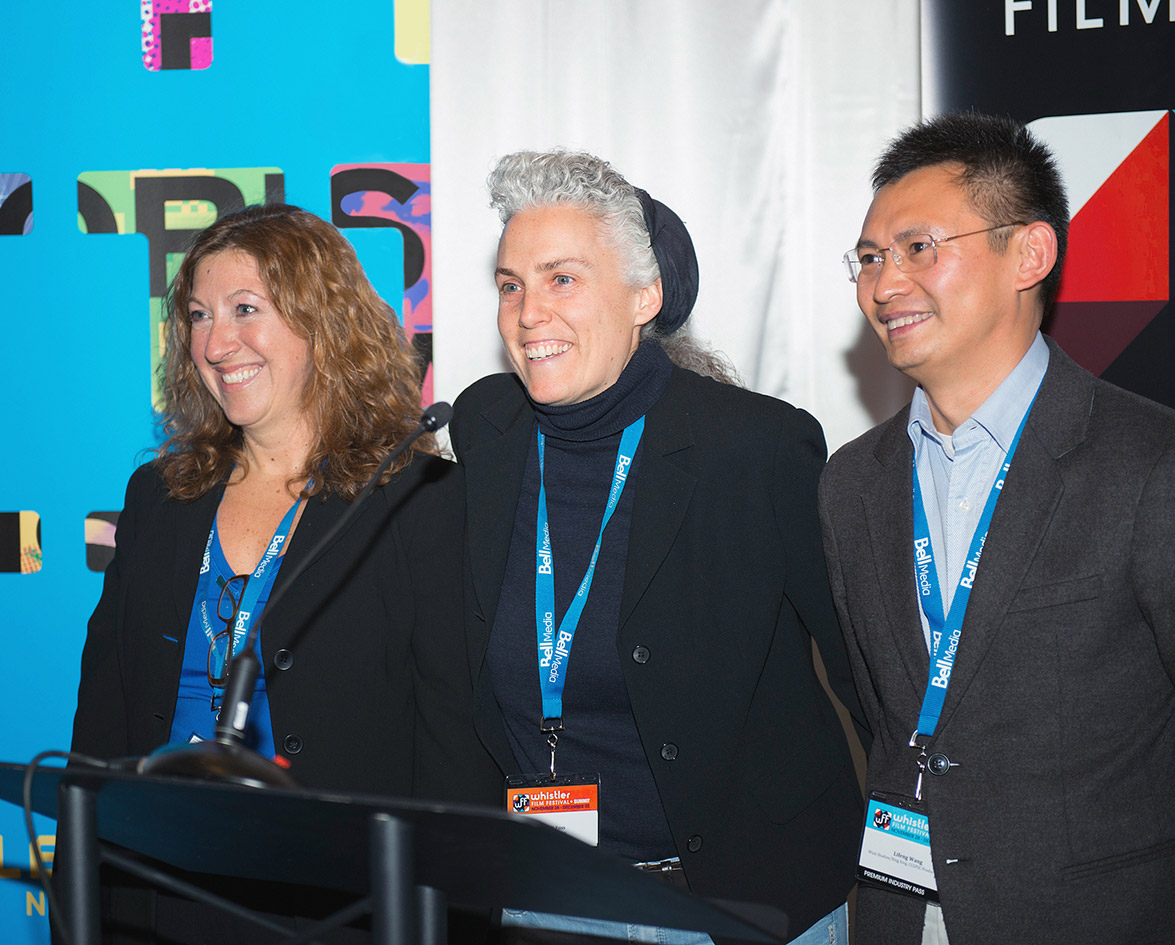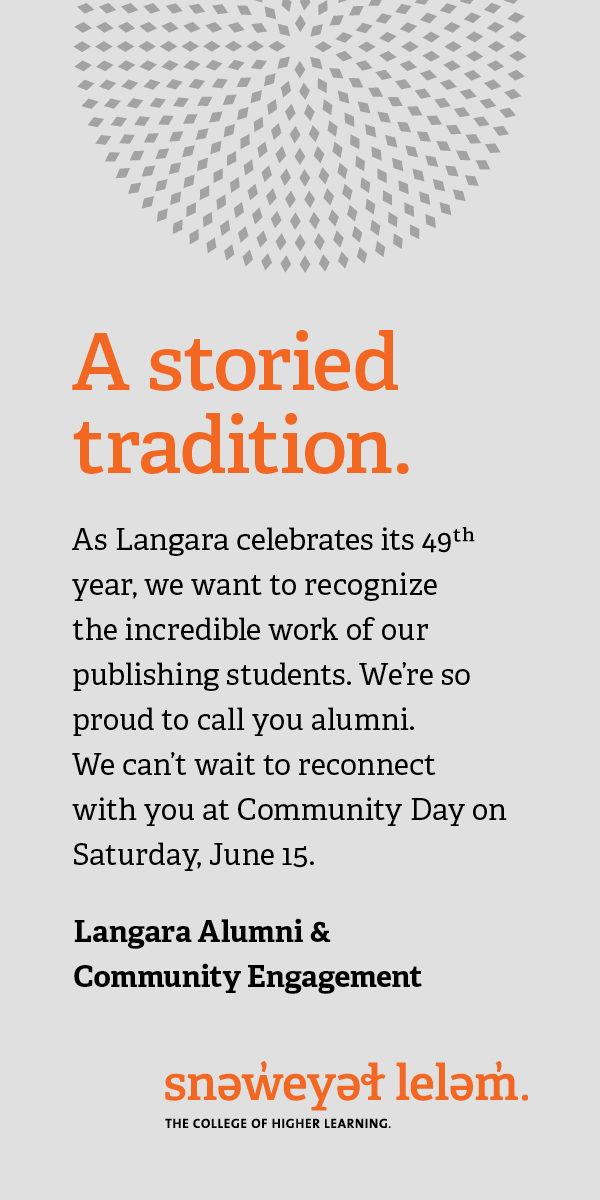At my grandmother’s grave, my mother opens up two containers filled with Chinese chicken buns and yellow sponge cake. It is Easter weekend, but my family is here to celebrate the Ching Ming Festival. The food we bring represents our spiritual offerings to our departed ancestors. My mother tells me she brings cakes and buns because they rise and represent prosperity: “That means our family is getting better and better; like the cake rising, our family is rising. It all means something.” In the distance another family surrounds a large steel can. They are burning gold-foil paper folded to represent gold bars. The ashes of these gifts will be taken into the heavens so the departed can use them in the afterlife.
Is Chinese Culture In Vancouver Dying?
I am 23 and know very little about these Chinese traditions. My friend Kevin Zhang doesn’t even know what the Ching Ming Festival is when I ask. As part of the younger Canadian-born Chinese generation, I sadly admit many of us do not fully understand the meaning behind the things our elders practice and celebrate. It leads to an important question: is Chinese culture in Vancouver dying? And is it something we should be worried about?
My mom, Gwen Lee, nearly 60 years old, is sitting near me on our family ’s big brown couch; it is 11 p.m., and the TV is on in the background. “Younger generations don’t care about these traditions,” she says. “They don’t see it as a part of their lives.” I understand where she is coming from. I have never tried to learn how to make special Asian dishes, and my mom has guilt-tripped me before for not taking advantage of what she knows. Gary Jang who volunteers at the Shon Lee Benevolent Association, a support group for Chinese families who have migrated to Canada, believes “There is an education difference, customs difference, and most importantly, a difference in friends. You don’t have the same common interests as we do. There is a huge generation gap between today’s elders and the younger generation.”
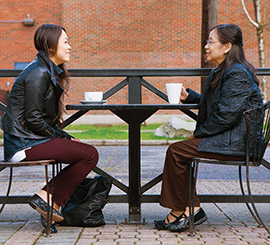
Lack Of Knowledge About Specific Celebrations Of Culture May Be Unimportant
But the lack of knowledge about Ching Ming Festival traditions, or any other specific celebration of the Chinese culture, may actually be unimportant. Henry Yu, a history professor who specializes in Asian migration in Canada at the University of British Columbia, says, “The assumption that culture is lost through Chinese celebrations is symbolic. It is a symbol for loss, but content-wise, it means almost nothing. Traditions are usually stand-ins for something else. If you have no idea what you’re going to the Ching Ming Festival for, then it’s useless.”
It’s not like there is some book out there to tell you how to be Chinese.
Then again, replacing our ethnic identity with an abstract saying like “I am Canadian” could actually be damaging to our sense of self. Professor Yu worries we will be Canadians without any heritage. “It’s not like there is some book out there to tell you how to be Chinese. For example, there could be books explaining the Ching Ming Festival, but if you don’t connect with it, it wouldn’t matter. It won’t be your story. It goes for anyone; your sense of who you are is actually quite concrete.”
Relationships And Bonds Remain Strong
Despite not following traditions, there are still some things that come naturally for my friends and me as younger Chinese-Canadians, even in Vancouver. The everyday way of life never really went away. The relationships between families, the food we enjoy, and the bonds between children and parents are still intact. It is very much like a circle, which is highly regarded in Chinese tradition. As a whole, the most important elements of celebrations are still a part of me.
I am extremely thankful for where I am, and I would not be here without the sacrifices my parents, grandparents, and other relatives have made. There is only so much that can be done to retain tradition in an environment that is changing and evolving. As long as we make the effort to understand our elders’ values, respect them, and situate them in our lives to the best of our ability, then we have done our best. And as Zhang says, “I think we’re still developing and evolving into what it’s like to be ‘Canadiasian.’ This is our culture now. It is new, but it is ours.”





